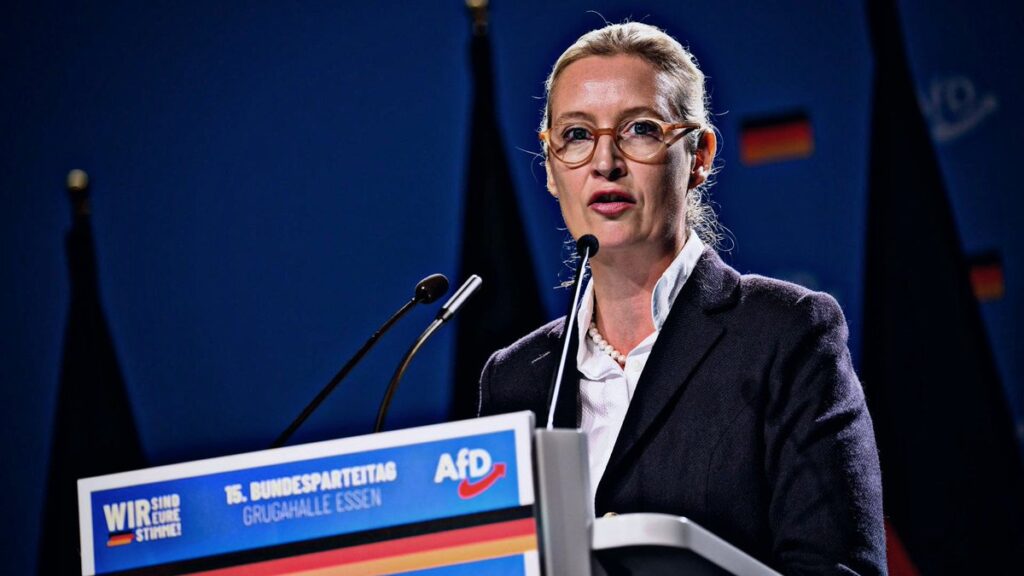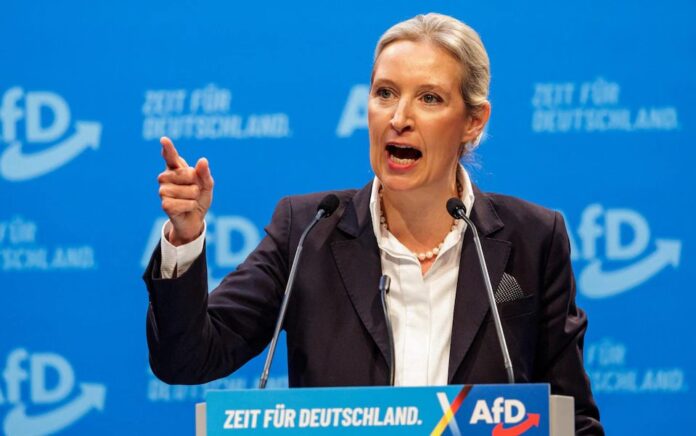As Germany approaches its upcoming snap federal election on 23 February, the far-right party Alternative für Deutschland (AfD) is embracing increasingly radical positions, with its leaders laying out ambitious and controversial plans for the country. At its conference held in the eastern city of Riesa, Saxony, AfD unveiled its manifesto, which includes proposals to close the nation’s borders, reverse its stance on Russian energy, and even dismantle the European Union (EU).
One of the most striking elements of the party’s platform was its endorsement of the term “remigration,” a euphemism for mass deportation or forced return of migrants and people with migrant backgrounds. Alice Weidel, the AfD’s leader, publicly embraced this concept, previously a source of controversy within the party, stating, “If it’s going to be called remigration, then that’s what it’s going to be.”

Weidel’s open support for “remigration” marks a significant departure from the party’s previous stance, where the concept was met with internal backlash. The controversial term was first popularized by figures like Martin Sellner, an Austrian far-right activist, and has been criticized for veiling overtly racist sentiments. Critics argue that remigration could target legal residents and asylum seekers, creating a climate of fear and hostility towards migrants.
The AfD’s manifesto also included plans to exit the Paris climate agreement, withdraw from the Euro currency, and dismantle the EU’s asylum system. Weidel has also vowed to tear down wind farms, calling them “windmills of shame,” and advocated for the removal of professors teaching gender studies.
Despite its growing confidence and increased support, the AfD remains a highly controversial party, with many other political groups refusing to collaborate with it. Sections of the AfD have been classified as right-wing extremist by domestic intelligence, further stoking fears about the party’s radical direction. Nevertheless, the party’s anti-establishment, anti-immigration, and anti-“woke” agenda resonates with a growing segment of the German electorate.
























